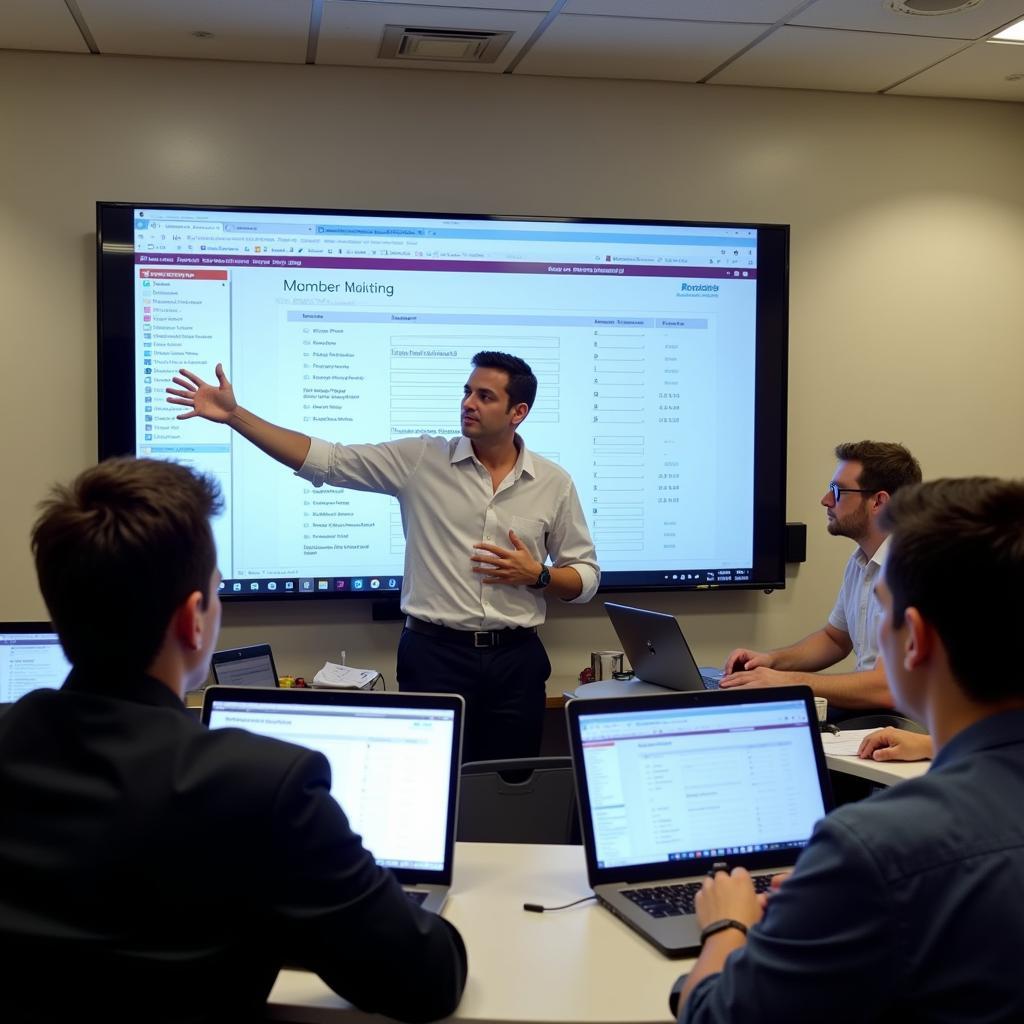Hospitality Accountants are essential to the smooth financial operation of any hotel, restaurant, or other hospitality business. They play a crucial role in maximizing profitability and ensuring financial stability in this dynamic industry. From managing costs and revenues to navigating complex tax regulations, these specialized professionals bring a unique skill set to the table.
Understanding the Importance of Hospitality Accountants
The hospitality industry is unique. It’s characterized by fluctuating demand, perishable inventory, and a high volume of transactions. This complex environment requires specialized financial expertise, which is where hospitality accountants come in. They possess a deep understanding of the industry’s specific challenges and opportunities. They are equipped to develop and implement financial strategies that drive success. Whether it’s analyzing sales data, managing payroll, or forecasting future performance, hospitality accountants are invaluable assets to any hospitality organization.
Successfully managing a hotel’s financial health requires skilled hospitality accountants. Their expertise goes beyond basic accounting principles; they understand the nuances of the industry. They provide insights that enable strategic decision-making and optimize financial performance.
Key Responsibilities of Hospitality Accountants
Hospitality accountants wear many hats. Their responsibilities extend far beyond simply balancing the books. They are involved in various aspects of financial management, including:
- Cost Control: Monitoring expenses, identifying areas for cost reduction, and implementing strategies to improve profitability.
- Revenue Management: Analyzing sales data, optimizing pricing strategies, and maximizing revenue generation.
- Budgeting and Forecasting: Developing accurate budgets, forecasting future performance, and providing financial projections.
- Financial Reporting: Preparing financial statements, analyzing key performance indicators, and communicating financial results to stakeholders.
- Tax Compliance: Ensuring compliance with all applicable tax laws and regulations.
- Auditing: Conducting internal audits to ensure the accuracy and integrity of financial records.
These responsibilities are vital for maintaining financial stability and driving growth within the hospitality sector.
 Hotel accountant reviewing budget forecast
Hotel accountant reviewing budget forecast
How Hospitality Accountants Contribute to Business Success
Hospitality accountants are more than just number crunchers. They are strategic partners who play a vital role in driving business success. Here’s how:
- Improved Profitability: By implementing effective cost control measures and revenue management strategies, they help businesses maximize their bottom line.
- Enhanced Decision-Making: They provide accurate and timely financial information that empowers management to make informed business decisions.
- Increased Efficiency: They streamline financial processes, improve operational efficiency, and reduce administrative burdens.
- Stronger Financial Controls: They establish robust financial controls that protect assets, prevent fraud, and ensure compliance with regulations.
- Better Investor Relations: They prepare accurate and transparent financial reports that build trust and confidence with investors.
What Skills Do Hospitality Accountants Need?
Beyond strong accounting fundamentals, successful hospitality accountants possess a blend of specialized skills:
- Industry Expertise: A deep understanding of the hospitality industry’s unique financial dynamics.
- Analytical Skills: The ability to analyze complex financial data and identify trends and insights.
- Technology Proficiency: Comfort with accounting software and other relevant technologies.
- Communication Skills: The ability to communicate financial information clearly and effectively to both financial and non-financial audiences.
- Problem-Solving Skills: The ability to identify and resolve financial challenges and develop creative solutions.
 Hospitality accounting software training session
Hospitality accounting software training session
Conclusion
In the competitive landscape of the hospitality industry, having skilled hospitality accountants is no longer a luxury, but a necessity. Their specialized expertise in cost control, revenue management, and financial reporting is critical to ensuring the financial health and long-term success of any hospitality business. Investing in qualified hospitality accountants is an investment in the future of your business.
FAQs
- What is the difference between a general accountant and a hospitality accountant?
- What certifications are beneficial for hospitality accountants?
- How can I find a qualified hospitality accountant for my business?
- What is the average salary for a hospitality accountant?
- What are some common challenges faced by hospitality accountants?
- What software programs do hospitality accountants typically use?
- How can technology improve the efficiency of hospitality accounting?
Need support? Contact us at Phone Number: 02437655121, Email: [email protected] Or visit us at: No. 298 Cau Dien Street, Minh Khai, Bac Tu Liem, Hanoi, Vietnam. We have a 24/7 customer service team.